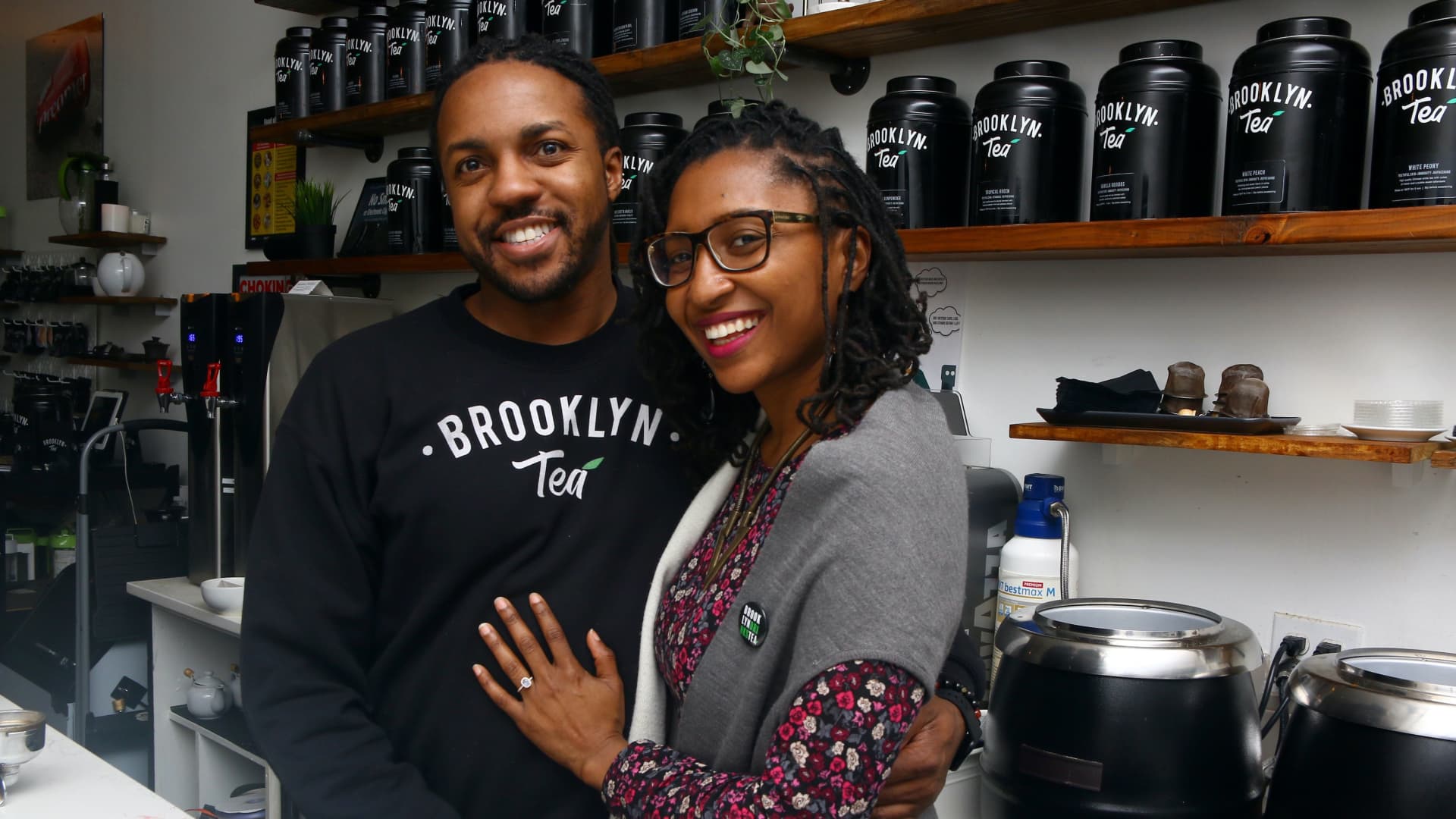Ali and Jamila Wright, co-owners of Brooklyn Tea.
Courtesy: Brooklyn Tea
Looking at the state of Black employment in America tells a mixed story: Much progress has been made in the age of the Covid-19 pandemic and beyond, but much is left to be done.
In the nearly four years that have passed since the pandemic upended the U.S. economy, the advancement for Black people has been unmistakable: a surge in earnings that outdid the gains for both white and Hispanic people, an unemployment rate that has fallen more than a percentage point from where it stood in January 2020 and a general sense that the collective consciousness has been raised regarding inequality in the workplace.
Yet, there are still racial discrepancies in terms of earnings. Black workers are still notably underrepresented in some professions, particularly high-end tech, and efforts to address some of these issues have fallen out of favor amid criticism that they have gone too far and are inefficient.
On balance, though, there’s a feeling of optimism that real progress has been made.
“This recovery really stretched the limits of what policymakers thought was possible for Black workers,” said Jessica Fulton, interim president at the Joint Center for Political and Economic Studies, a Washington, D.C.-based think tank that focuses on issues for people and communities of color. “We were in a situation where folks accepted that Black unemployment was going to always be high and there was nothing that they could do about it. So I think this is an opportunity to continue to push the limits of what’s possible.”
When looking at the data, the numbers are encouraging.
The Black unemployment rate in January was 5.3%, up a touch from December but still near the all-time low of 4.8% hit in April 2023. Black employment in the month totaled nearly 20.9 million people, up 6.3% from February 2020, the month before the pandemic hit, according to the U.S. Bureau of Labor Statistics.
From a pay standpoint, the numbers are even…
Read the full article here

Leave a Reply